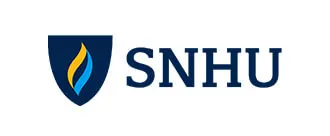Do you have an undergraduate degree in accounting? Would you like to gain specialized knowledge in forensic accounting so that you can discern financial anomalies for corporations, banks, or government agencies? If so, you might consider registering at Southern New Hampshire University. The school offers the Master of Business Administration (M.B.A.) with a concentration in Forensic Accounting. For more details, read on.
<h2 id="section---FrequentlyAskedQuestions">Frequently Asked Questions</h2>
<h3 id="section---WhatKindOfProgramIsIt">What Kind of Program Is It?</h3>
<p>Forensic accounting is a practice which involves the detection, prevention, and investigation of fraudulent activities in corporations as well as in divorce, insurance, and bankruptcy cases. Findings are often used in legal proceedings. In an effort to train individuals in this accounting specialty, Southern New Hampshire University offers the Master of Business Administration in Forensic Accounting. Along with business concepts, you will have the opportunity to learn about investigative strategies which are employed to solve financial crimes such as inventory theft and money laundering. You can also study topics such as fraud characteristics, information technology, and asset recovery.
</p>
<h3 id="section---WhatAreTheApplicationFees">What are the Application Fees?</h3>
<p>No application fee.
</p>
<h3 id="section---WhatAreThePrerequisites">What Are the Prerequisites?</h3>
<p>As a candidate for this program, you should have a bachelor's degree and prior knowledge of accounting. In addition, you must enjoy working with numbers and financial data. Excellent communication and organizational skills are essential. All applicants to Southern New Hampshire University programs must have earned a bachelor's degree or equivalent.
</p>
<h3 id="section---WhatAreTheCourseRequirements">What Are the Course Requirements?</h3>
<p>Your curriculum will include ten core courses and three forensic accounting concentration courses. Specialized foundation courses may be necessary if your undergraduate major was in a subject other than business. You must earn a total of 39 credits in this program.
</p>
<p><u>M.B.A. Core Courses</u>*
</p>
<p />
<table border="1"><tr><th>Course Code </th><th>Course Name</th></tr>
<tr><td>ACC 500 </td><td> Introduction to Forensic Accounting and Fraud Examination</td></tr>
<tr><td>IT 500 </td><td> Information Technology</td></tr>
<tr><td>MKT 500 </td><td> Marketing Strategies</td></tr>
<tr><td>ECO 500 </td><td> Managerial Economics</td></tr>
<tr><td>FIN 500 </td><td> Financial Management</td></tr>
<tr><td>INT 610 </td><td> Multinational Corporate Environment</td></tr>
<tr><td>MBA 700 </td><td> Strategic Management</td></tr>
<tr><td>OL 690 </td><td> Responsible Corporate Leadership</td></tr>
<tr><td>QSO 510 </td><td> Quantitative Analysis for Decision-Making</td></tr>
<tr><td>QSO 600 </td><td> Production and Operation Management</td></tr>
</table><p><u>Specialized M.B.A. Foundation Courses</u>
</p>
<p>Some students may be required to take foundation courses as prerequisites for more advanced MBA material. Students with business-related undergraduate degrees typically are exempt from most foundation courses. In many cases, students choosing the electives track are able to apply credit hours from their foundation courses against their elective requirements.
</p>
<p />
<table border="1"><tr><th>Course Code </th><th>Course Name</th></tr>
<tr><td>MBA 501 </td><td> Mathematics and Statistics for Business</td></tr>
<tr><td>MBA 502 </td><td> Economics for Business</td></tr>
<tr><td>MBA 503 </td><td> Financial Reporting and Analysis</td></tr>
<tr><td>MBA 610 </td><td> Business Law</td></tr>
<tr><td>OL 500 </td><td> Human Behavior in Organizations</td></tr>
</table><p><u>Forensic Accounting M.B.A. Courses</u>
</p>
<p />
<table border="1"><tr><th>Course Code </th><th>Course Name</th></tr>
<tr><td>ACC 691 </td><td> Detection and Prevention of Fraudulent Financial Statements</td></tr>
<tr><td>ACC 692 </td><td> Interview Techniques / Legal Aspects of Fraud</td></tr>
<tr><td>ACC 693 </td><td> Investigating with Computers</td></tr>
</table><p><i>*Coursework subject to change.</i>
</p>
<h3 id="section---WhatCouldIDoAfterGraduation">What Could I Do After Graduation?</h3>
<h4 id="section---CareerOpportunities">Career Opportunities</h4>
<p>Areas in which you might seek employment include auditing, research, litigation support, dispute resolution, and corporate fraud prevention. After completing your M.B.A. in Forensic Accounting and acquiring any necessary licensing or certifications, you could conceivably pursue public or private sector positions such as:
</p>
<ul><li>Forensic Accountant
</li><li>Forensic Auditor
</li><li>Certified Public Accountant (C.P.A.)
</li><li>Certified Fraud Examiner</li></ul>


.svg)


